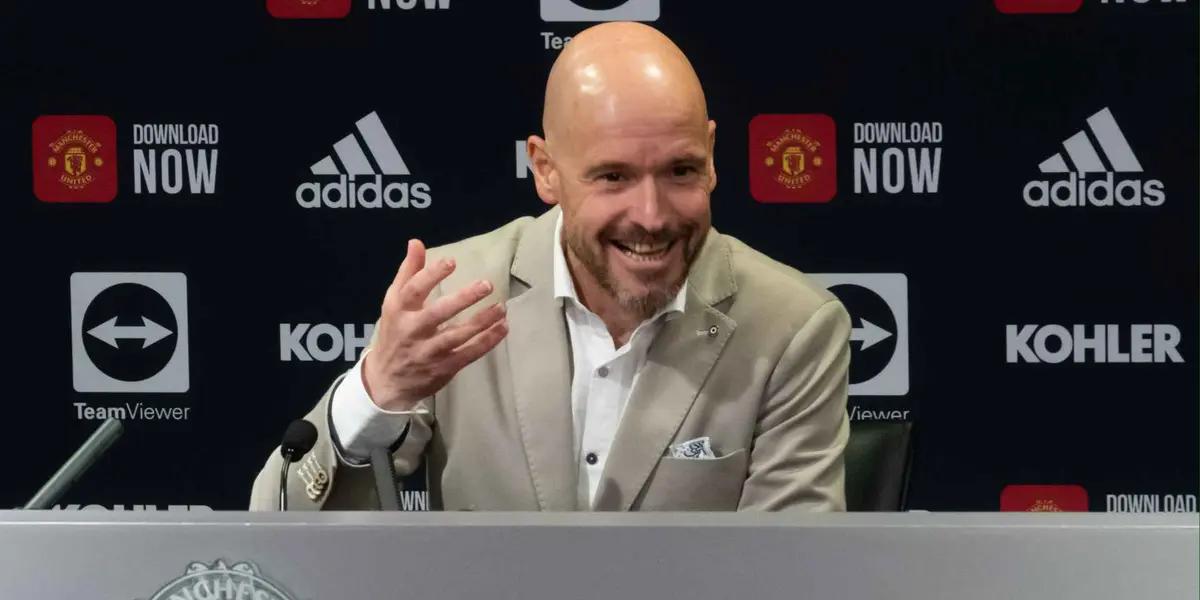The Reason Why Ten Hag is Still at Manchester United Despite Poor Results
The United coach isn’t enjoying much media support.

Erik ten Hag's situation as Manchester United manager has turned into a soap opera with a seemingly inevitable ending. Despite constant rumors of his imminent sacking, the Dutch coach remains in charge, puzzling both fans and the media.
For months, there has been speculation about Ten Hag’s departure. Each defeat or inconsistent performance by the team has been interpreted as yet another sign of the looming end of his tenure at Old Trafford. The loss to Tottenham was seen as the trigger for an ultimatum that, apparently, hasn’t been enforced.
The decision to extend Ten Hag's contract a year earlier was initially viewed as a sign of confidence from the board. However, it’s now being interpreted as a strategy to avoid an even higher severance package.
A Numbers Problem
The figures are clear: sacking Ten Hag would deal another financial blow to Manchester United, which has already spent millions in compensation for managers like José Mourinho, Ole Gunnar Solskjaer, Ralf Rangnick, Louis van Gaal, and David Moyes.
This raises questions about the club’s financial management. Why wasn’t a decision about Ten Hag’s future made earlier? Why have there been so many managerial changes in recent years? The answers to these questions are key to understanding Manchester United’s current situation.
The Consequences of Erratic Management
The instability on the bench has negatively impacted the team’s performance and eroded fans' confidence. Additionally, the high cost of severance packages has limited the club’s ability to invest in quality signings.
It’s clear that Manchester United needs a long-term sporting project and institutional stability to compete at the highest level again. While Ten Hag’s departure seems inevitable, it’s just one step in what appears to be a long and complex rebuilding process.
More news

THE GANG IS HERE! First Argentine Stars Arrive in Buenos Aires for Final Qualifier Push!
01/09/2025

THE LAST DANCE! Lionel Messi Confirms His Final World Cup Qualifier in Argentina!
29/08/2025

TRANSFER COLLAPSES! Julio Enciso Fails Medical Exams, Returns to Brighton!
27/08/2025

Vini doesn't feel entirely comfortable at Real Madrid anymore and is seeking a future at another club
26/08/2025

HERE WE GO! Piero Hincapié Says YES to Arsenal, Club Prepares Final Bid for Leverkusen Star!
26/08/2025

THE REAL MADRID SHOWDOWN: Nico Paz's Future Sparks a Bidding War Across Europe!
25/08/2025

SOUTH AMERICAN SHAME: Independiente vs. U. de Chile Match Canceled After Horrific Incidents!
21/08/2025

Rodrygo Benched by Xabi Alonso: The End of an Era at Real Madrid?
20/08/2025

PARIS IN PARIS! The New Superclub, Paris FC, Rises to Threaten PSG-Marseille Rivalry!
20/08/2025

PSG’s €850M Budget is 30x Larger Than the Smallest in Ligue 1!
19/08/2025

THE DEBUTS ARE HERE! Estupiñán & Modrić Step Onto the San Siro Stage!
18/08/2025

CONTROVERSY IGNITES! Barcelona Opens Season with a Contested 2-0 Victory Over Mallorca!
18/08/2025

SCANDAL ESCALATES: Donnarumma's Harsh Letter Responds to Luis Enrique's Super Cup Snub!
15/08/2025

Franco Mastantuono: A New Number 30 for Real Madrid with a Nod to the Past
14/08/2025

HISTORY MADE! PSG Wins First-Ever Super Cup Title in Thrilling Penalty Shootout!
14/08/2025

Mastantuono Arrives at Valdebebas for Real Madrid Presentation
13/08/2025

ON AND OFF THE PITCH: Is Nicki Nicole the New WAG of Barcelona's Lamine Yamal?
13/08/2025

Donnarumma Bids Farewell to Paris Saint-Germain at the Peak of His Career
13/08/2025



